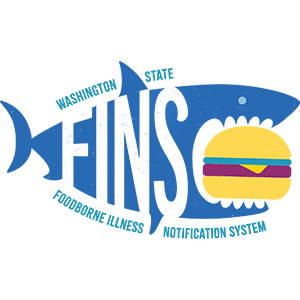Food Establishment Inspections
Conducts inspections of food establishments and provides education to businesses and consumers in an effort to prevent food-borne illness.
Contact Us
- 509.324.1560 ext 2
- Email Us
- M - W: 8 a.m. - 4:30 p.m.
- Th: 8:30 a.m. - 4:30 p.m.
- F: 8 a.m. - 12:30 p.m.
Overview
This section of the website provides information on food establishment inspections conducted by Spokane Regional Health District (SRHD).
Food Establishment Inspection Reports (PDF)
Temporary Food Establishment Inspection Reports (PDF)
Please be advised that the results of all inspections posted on this section of the site only describe what the SRHD Environmental Public Health specialist observed at the time of the inspection, at the physical location of the establishment. Reports are not intended to guarantee the conditions of a food establishment at all times, nor are they meant to endorse any food establishment or products. Changes in establishment name, ownership or management are not shown
More Information
Copies of complete inspection reports may be requested in SRHD’s Environmental Public Health office at 1101 W. College Avenue, Room 402, Spokane, between the hours of 8:30 a.m. and 4:30 p.m., Monday through Thursday, Friday between the hours of 8am and 12:30. A public records request form will need to be submitted for each request.
Food Establishment Inspection FAQs
Why are food establishments inspected?
The food safety rules and the local inspection program are designed to help ensure that food establishments are safe places to eat. The inspection reports are used as tools to measure compliance with the food safety rules, highlight areas to educate the operators, and guide corrective actions to help prevent food-borne illness.
How often are food establishments inspected?
The rules require that most food establishments be inspected at least once every year to determine if they are in compliance with the rules. Establishments in the Complex Food Establishment category are inspected at least twice a year. Food establishment categories are determined by the menu and methods of food preparation.
Which inspection reports are online?
Only shortened versions of routine, first re-inspection, second re-inspection, and follow-up inspection reports are available online. Complete inspection reports are public records and may be requested through a Public Records Request at the Spokane Regional Health District Environmental Public Health office, 1101 West College Avenue, Room 402, Spokane, Washington.
Which food establishments are inspected?
Retail food establishments that serve food to the public are inspected by the health district. These establishments include restaurants, schools, mobile vendors, coffee houses, delis, convenience stores, grocery stores, temporary events and other sites where food is sold or served to the public. There are approximately 2,300 permitted permanent food establishments in Spokane County.
Establishments are assigned a permit number based on their physical location. All inspection information will show under the current name of the establishment. Changes that may have occurred in owner, management or establishment name are not shown.
What are the keys to food safety?
Inspections are risk-based and focus on those high risk factors most likely to cause food-borne illness. Areas of focus include: ill food worker policy, hand washing, bare hand contact with ready-to-eat foods, food temperatures, food safety knowledge, cross-contamination, and sanitation.
What is a perfect score on an inspection report?
There are 418 possible points on the inspection report form. The lower the score, the fewer food safety violations observed at the time of the inspection. A perfect score is zero.
What else should I remember?
Inspection reports are snapshots of the food handling at the establishment at the time of inspection. Conditions may be different when a person visits. The inspections assess safe food handling practices and sanitation rules of the Washington State Food Regulations WAC 246-215, and do not address such items as taste or popularity.
One last thing… the health district hopes that the public finds find this information helpful and easy to use. Questions or concerns? Please call the Environmental Public Health office at 509-324-1560, Ext. 2 between 8:00 a.m. and 4:30 p.m., Monday through Friday.

Report Unsafe Food Handling or Foodborne Illness
Please report unsafe food handling practices or foodborne illness to the Washington State Department of Health Foodborne Illness Notification System (FINS).
